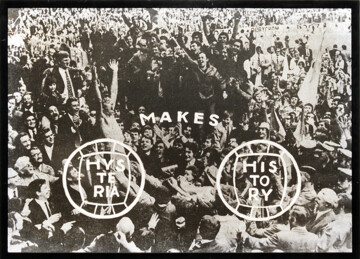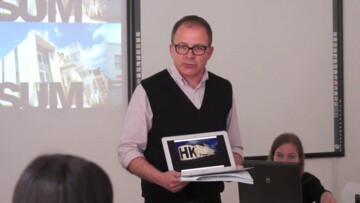We have discussed the term ‘historicisation’ from what we imagine to our local point of view. In itself, historicization can be both ‘positive’ (a conceptual device that anchors the present in the past) and ‘negative’ (an excuse to cling to history, or even synonymous with ‘revivalism’ or ‘eclecticism’). In the context of Flemish and Belgian contemporary art and visual culture, two remarks on historicization seem pertinent. First, this part of Europe is wealthy and densely populated and has been so for almost a millennium. Its culture is, broadly speaking, more to do with accommodating new things (and ideas) into existing constellations than with creating them from scratch, with references to the innate qualities of ‘nature’ or ‘the people’ or other such notions that are often used to construct a sense of national identity. Historicization is, we might say, a natural cultural condition in the Low Countries, especially in their Catholic provinces. Second, in Belgium, the ‘contemporary art heritage’ (a neologism created to name the umbrella organisation for the leading Flemish museums of contemporary art) has, at least since the 1970s, been well integrated into the western mainstream. Artists such as Broodthaers, Panamarenko, Bijl, Dujourie, Vercruysse, De Cordier, De Keyzer, Tuymans and others have, along with museums, art centres, galleries, collectors and curators, made themselves known in a larger European context. This means that historicization, in our immediate context, is less about restoring the proper place and value to recent local history in the international context, and more about an analysis of history and historicity as overall concepts. Having considered several terms, such as ‘reconfiguration’ or ‘reconstitution’, for describing how historicization might address what is to come rather than what is gone; we arrived at the term ‘reconstruction’. We might say that there is – should be – no deconstruction without reconstruction. That, anyway, is one interpretation of what Antonio Negri said at the recent L’Internationale conference in Madrid… Contrary to first appearances, there is nothing reactive or reactionary about reconstruction. Instead, the term is an example of how the prefix re- can be turned around to point forward, towards a brighter future. When institutions are reconstructed, it means more than just reorganising or rebuilding them. When terms are reconstructed, their old meanings don’t have to be evacuated. Perhaps reconstruction, as a term and a practice, might serve to reconcile revolution with reformism? Not least since both these notions have also, historically speaking turned the re- around. (See, for instance, Hannah Arendt, On Revolution.) Needless to say, these are preliminary remarks.



